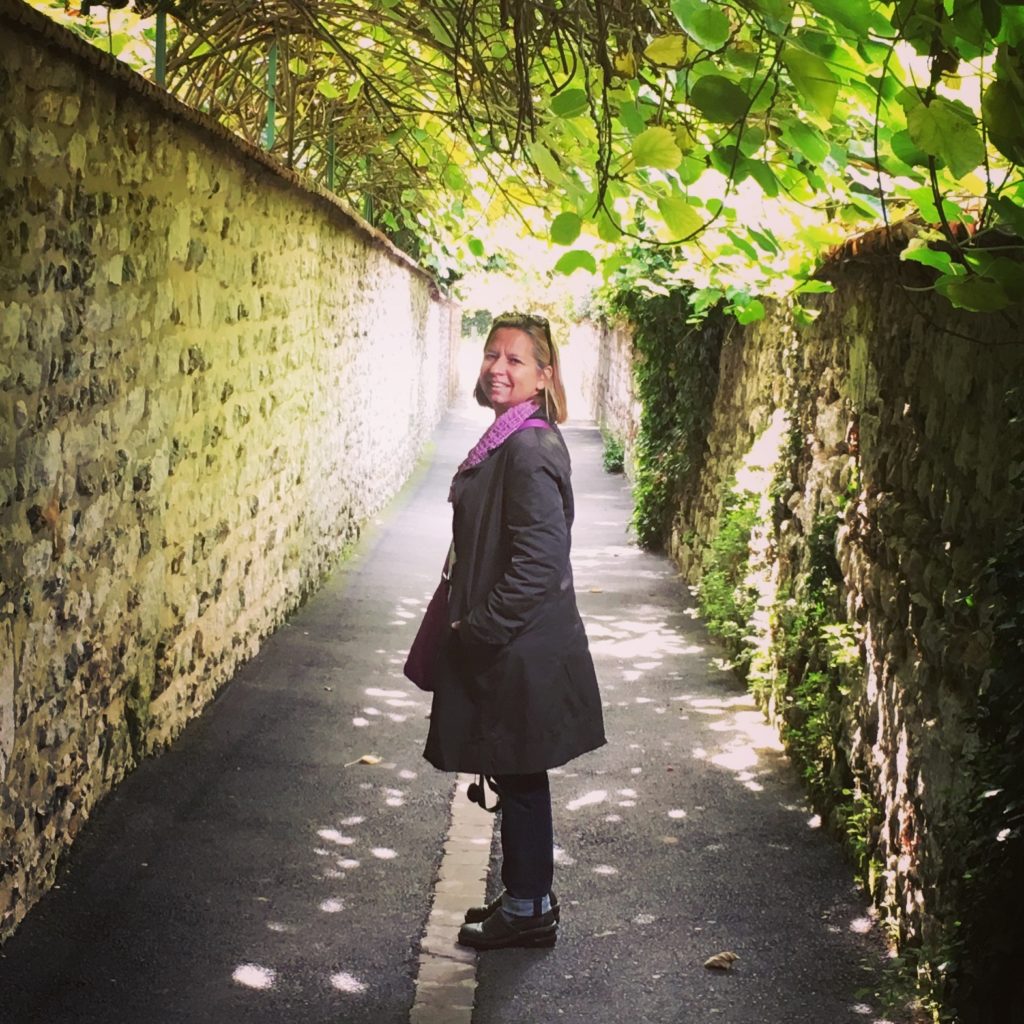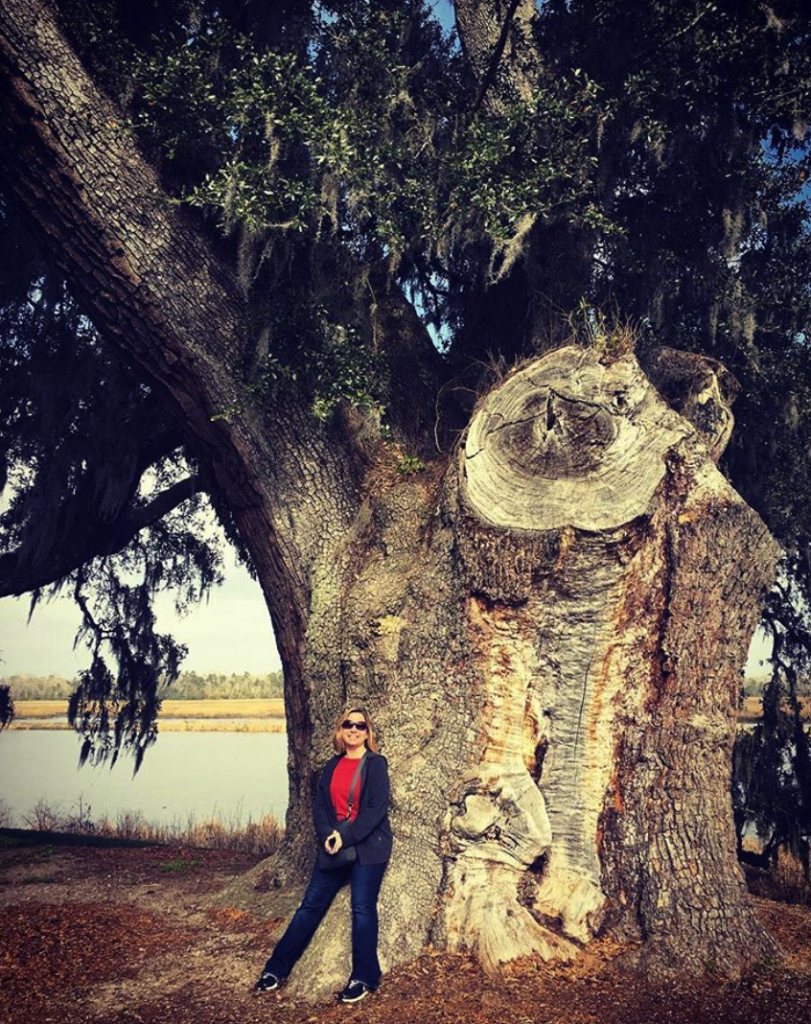My hormone doctor recently told me that my FSH levels suggested I was indeed in menopause. This announcement made me practically jump out of my chair and dance around the room singing.
“I am so ready to be done with all this,” I said.
To say the previous 18 months had been grueling would be an understatement. Perimenopause (the period before menopause) for me, was turning out to be hell, pure and simple. And nobody (not my mother, my sisters, my friends, my elders) and nothing (not puberty, pregnancy, childbirth, postpartum) had prepared me for this final step through Dante’s hormonal inferno.
Eighteen months ago, I faced empty nest with sadness and trepidation, but also with high hopes for the next stage of my life. I was determined not to focus on the void left by my kids leaving home. So I went ahead and planned a week at the beach post-Labor Day (something we couldn’t do with kids still in school) and a trip to Normandy, France, with my husband for my 50th birthday. I plugged back into my writing, and felt supported by the various groups of women I had befriended during my quest for wellness, connection and community.

Things weren’t perfect, but I was at the stage of life where I could now focus on my health, desires and goals. I was still struggling with chronic Lyme disease, but after five years I learned to manage my illness and not let it keep me from doing the things I really wanted to do. I had come to accept the fact that I could no longer plow through life at full-throttle, 24/7, without self-care and rest.
However, soon after I returned from France, my body was visited by the demon known as perimenopause, and it clamped down tight. The physical symptoms came first — migraines, heart palpitations, sinus infections, urinary tract infections, cramping, pelvic pain, breast pain, backaches, hot flashes and night sweats. My hair started turning grey and became brittle, snapping in two for no apparent reason. My skin turned ashen and dry. Then came the insomnia. I was up most nights until 3 a.m., a surge of cortisol surging through my body. When I tried to go to sleep early, I tossed and turned, with anxious thoughts of death and dying. When I did fall asleep, I awoke with terrifying, vivid nightmares that left me gasping for breath, while my heart pounded wildly.
After months without sleep, my Lyme symptoms flared. I craved junk food. I was too tired to exercise, and I put on weight — all of it in my stomach. I looked more pregnant at 50 then I did a week before going into labor with my son. I hated that this weight gain bothered me so, but when I looked in the mirror I no longer recognized the person I saw. I didn’t recognize the person inside my body either.
I was a tornado of changing emotions — moody, depressed, anxious, angry, bitter, hopeless, helpless and unmoored. It felt like Puberty 2.0. I hated my body. I hated everybody. Nobody understood what I was going through. Nobody cared.
I was trapped on a roller coaster speeding towards a brick wall. And there weren’t any brakes that I could see.

Initially, I didn’t dread menopause. I kept an open mind, and had no preconceived notions about a process that is a normal and natural biological function for aging women. Unfortunately, I wasn’t prepared for the reality of this transition — well, because nobody prepared me!
Why — if this is something so darn normal and natural — do we speak about it in hushed voices? Why are we embarrassed to even say the word “menopause”? Why are we ashamed to admit our seasons of bleeding are coming to an end? Why do post-menopausal women experience total hormonal-amnesia?
What is hormonal amnesia? It’s the condition where women remember childbirth as being super-easy, and menopause as being barely an inconvenience.
The irony is that when I think back about the menopausal women in my life, it now becomes obvious to me when they were going through their own changes. Maybe they don’t remember, but I remember their anxiety, insomnia, mood swings and panic attacks. I remember the talk of horrific cramping and profuse bleeding that left some of them anemic or lead to hysterectomies for others. I remember the marriages that blew up and the other long-term relationships that were severed over something so inconsequential that nobody could remember what. I remember that things hadn’t been rosy, and that all of the positive thinking + jugs of wine + muscle relaxants in the world couldn’t compete with the raging hormones inside.
I actually thought my own transition would be much more peaceful than this. After decades of therapy, and years of chronic illness, I was luckier than most in that I already faced a lot of my demons heads on. I knew how lethal unresolved trauma and stress could be on my mind and body. I had assembled a fairly substantial support team (a.k.a. My Soul Sisters and Female Avengers), and I worked towards balance daily. I meditated, walked in nature, read books, sipped tea, journaled, prayed, swam, received regular massages, cooked healthy meals and did yoga. I looked inward for answers, and stopped pursuing busy work and external accomplishments as a way to define myself.

But with perimenopause? None of my hard-earned lifestyle or self-care tools helped disrupt the biological warfare being waged within my body. Talk therapy could not convince my cortisol to retreat. A walk in nature could not settle my rapidly cycling manic mind. A cup of tea could not produce more progesterone, or reboot my adrenals. Most of the time I just wanted to be left alone in silence. I could not handle any stimuli or input that was loud, abrasive or demanding. I needed to cocoon.
And finally, I hit a rocky bottom. I became severely depressed and needed to go back on antidepressants for the first time in over a decade. I found a hormone doctor to help manage the biological end of things. I created a more regimented sleep routine. I logged off of social media and used that time productively to read books every night before bed. I began walking, with a goal of 10,000 steps a day. I once again learned to immerse myself in activities and thoughts that raised my energy, while avoiding the people, places and things that depleted me.
I know there are some who will be angry that I speak of menopause in this way, as if it some illness or liability. I agree it is not a disability. But that doesn’t mean its accompanying symptoms aren’t sometimes disabling. Women’s health issues — physical, mental and emotional — are often tied up together in one big knot. Unfortunately, our complaints are still ignored by a medical community that doesn’t recognize our unique concerns, or maybe doesn’t really understand our complex hormonal makeup. We are told it is normal and natural to go through these processes, and made to feel as if we should therefore just grin and bear it.
Fortunately, I decided a long time ago to speak my truth, hopefully as a way to let other women know it’s OK to speak theirs. So here goes:
My pain is real.
I do not need to suffer in silence.
I am not alone.
As long as we are all going through this at the same time, we may as well go through it together.
I’ll start.
Hi, I’m Lizbeth, and I’d like to talk about my menopause.

